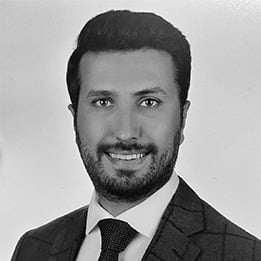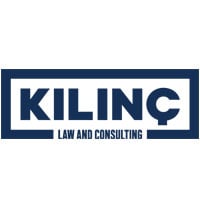

Senior legal counsel and compliance officer | Enerjisa Enerji Üretim



İsmail Tohma
Senior legal counsel and compliance officer | Enerjisa Enerji Üretim
Team size: Eight
What has been the number one challenge that has impacted you over the past year?
After the effects of the pandemic diminished, companies tend to pass to hybrid working model. While it has considerable advantages in terms of good time management, so said “new normal” brought several undeniable challenges as well. For instance, negotiating of a contract is sometimes carried out both virtually and physically, however, some negotiations skills can be exerted only during face-to-face discussions. Persuasion of the counterparty during a contract negotiation could require sincere chats and explanations however, during virtual meetings, it is quite rare to pass your sincerity to the counterparty. I do not believe that this challenge will be a matter hard to cope with, however, new skills would be needed to be acquired to have successful and fruitful virtual negotiations as it could be obtained through in-person meetings.
Can you outline your role in the legal function of your organisation and any significant cases or transactions you were involved in?
In Enerjisa Üretim legal and compliance department, I have two hats:
First, due to my capacity as a legal professional, I am working as senior legal counsel reporting to head of legal and compliance. My main area of expertise in Enerjisa Üretim is to provide legal assistance in respect of investments by way of either M&As or new investments through supply and installation of renewable power sources. As an example to the latter, which is for the time being regarded as a milestone in the power generation market in Türkiye considering the significancy of the volume of the planned installed power capacity (1,000 MW) and the amount of investment in figures (US$1.2bn), given that in my humble opinion that it plays a crucial role in Türkiye in terms of carbon neutrality and sustainability, I can cite YEKA-2 WPP projects being the major transaction of the last year that I was involved in. With respect to this project, (i) Enerjisa Üretim has acquired shares of two companies which has been awarded with certain feed-in capacities in YEKA-2 WPP tender through which wind farm projects with a capacity of up to 500 MW in Balıkesir and Muğla regions will be developed and; (ii) Enerjisa Üretim, Enercon Turkey and Enercon Global GmbH have agreed for the manufacture, supply, installation and operation and maintenance of wind energy converters for a total capacity up to 1,000 MW within YEKA-2 WPP areas, being Balıkesir, Muğla, Çanakkale and Aydın regions, the last two of which have been previously awarded to Enerjisa Üretim through YEKA-2 WPP tender. My role in this project entailed to drafting, negotiation and closing of share purchase agreements, offshore and onshore supply agreements, installation agreements and maintenance agreements.
Secondly, I have been vested with compliance officer function in Enerjisa Üretim being responsible for conduct of all activities within the scope of the compliance programme of the company. Within this scope, with the head of legal and compliance of the company, I am the main addressee of the compliance matters and I draft and issue compliance policies and revise the current policies where required, I conduct both virtual and in-class compliance trainings to the employees of the company. As part of the digitalisation goals of the company, we have implemented several software to enable us to monitor the outputs of our compliance programme and screen the compliance and international sanctions risks.
In what ways do you see the in-house legal role evolving over the next few years?
In my opinion, the role of the in-house legal department will expand, and it will be perceived as a business function extension, rather than an oversimplified definition of an ‘internal law firm’. In Türkiye, it is quite rare to see a member of the board of directors having a legal background, however, as the world has faced heavy impacts of the pandemic on the companies, in terms of disputes on the one hand, and nowadays the disruptive conclusions of conflict of nations has been once again taken into account, on the other hand, litigation and arbitration risks and sanctions risks have become major items to be considered by the companies when an investment decision is taken and thus, managers will require a seat in the board of directors to be filled by legal professionals, to ascertain legal and compliance risk to be quantified.
In addition to that, since the workload per hour is augmenting day by day, automation is, and will always be, a matter to be addressed by the legal professional, though law is one of the majors that requires human input due to the nature of the ability of judgment. In this direction, I believe the future will bring requirement of legal professionals who can make use of legal technologies and even future’s lawyers will be required to have a basic knowledge of software.